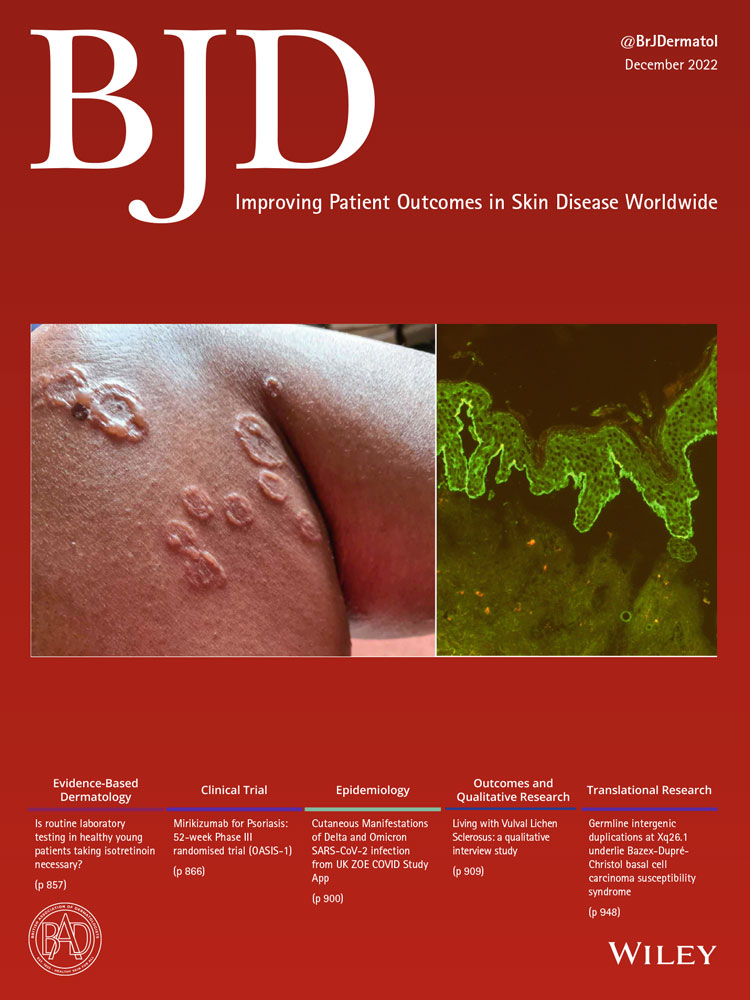Skin reactions to immune checkpoint inhibitors used in cancer treatment
Abstract
Linked Article: Nikolaou et al. Br J Dermatol 2022; 187:962–969.
Immune checkpoint inhibitors (ICIs, such as ipilimumab and pembrolizumab) are drugs used in the late stages of some cancers, including melanoma, kidney cancer and non-small cell lung cancer. ICIs act by enhancing a person’s immune defence against the cancer. Unfortunately, adverse effects on the immune system are common, affecting around 60% of patients. Skin reactions are especially frequent, requiring treatment to be interrupted or even discontinued.
This study was conducted at 10 centres across southern Europe and one in Argentina. The authors, who specialize in skin side-effects of cancer treatments, reviewed immune-related skin reactions attributed to this group of drugs. Out of 762 patients, the most commonly treated condition was non-small cell lung cancer (51%), followed by melanoma (26%).
The study found that 197 patients (26%) developed more than one skin reaction during treatment. Psoriasis and itching were the most common reactions, followed by lichen planus (a type of rash) and vitiligo. Eight patients developed a life-threatening skin condition such as toxic epidermal necrolysis (blistering and peeling of the skin). The type of skin reaction varied with the type of cancer: psoriasis predominated in patients being treated for non-small cell lung cancer, whereas patients with kidney cancer most frequently developed itching. Vitiligo was especially seen in patients receiving treatment for melanoma.
In conclusion, based on the frequency of skin reactions observed with the use of ICIs, dedicated referral to oncodermatology clinics is necessary for diagnosis and management. Until then, patients on ICIs should be closely monitored by specialized dermatologists as part of standard care.




